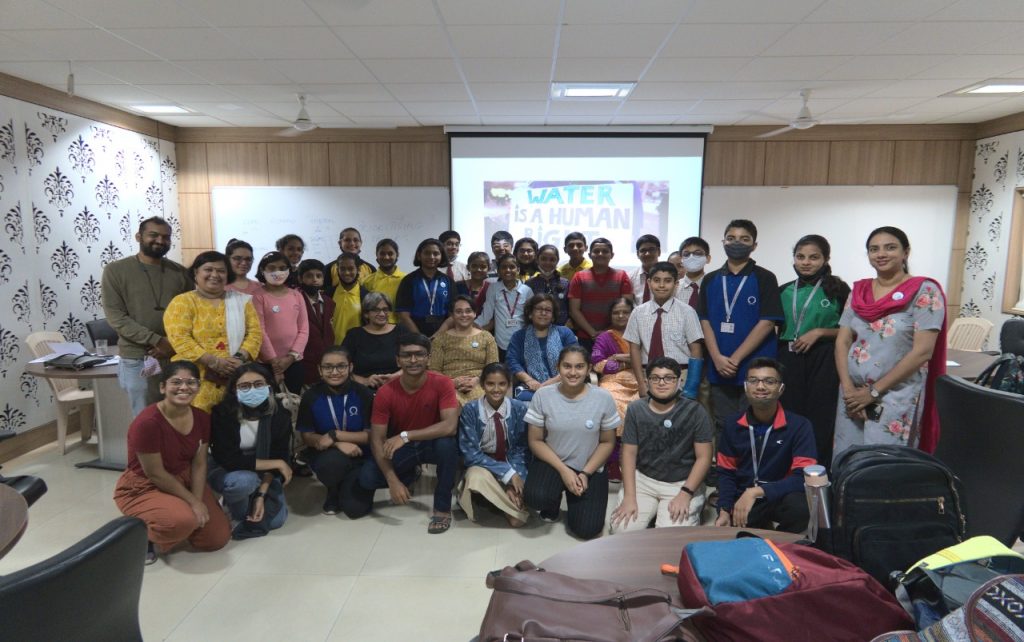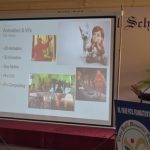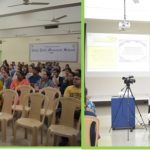
Water Classrooms is a joint project of Living Waters Museum (LWM), Centre for Water
Research, TESF, IISER Pune and India Indian Institute for Human Settlements, ( IIHS) in
collaboration with Centre for Environmental Education (CEE) . It aims to generate
interdisciplinary knowledge about water systems, including their history and heritage, resource
management and sustainable use, and to train the next generation of scholars to look at water
from a multi-dimensional lens. Selected nine middle school students are participating for the
eight sessions to be held on different days at IISER, Pune.
Session 1 ( 3/07/2022)
The topic for the first workshop was “Water and Myself” and “Where does water come from”.
The session was curated by Chhavi Mathur Project Coordinator (Living waters museum) .The
main objective of the workshop was to look at water from an inter disciplinary perspectives.
The session started with a quick introduction of each other. Next, the students made a mind
map that showed how water affects nearly every aspect of their life from using it for personal
hygiene to using it for a livelihood. They were asked to draw the origin of water on the sheets
provided starting from the tap which provides them with water. They were also shown the
topography of Pune and its surrounding areas with the rivers and tributaries that bring water to
the city and then the students had a short discussion how human development can hamper the
natural water channels.
Session 2 (10/07/2022)
The topic for the workshop was “Values, practices, roles and responsibilities toward our
Shared Waters”. The founder-director, Dr Sara Ahmed (Living waters museum) engaged
students in activities and conversations around water values, cultural practices and water as a
human right – access, caste, poverty. The students were then told a story titled “Paani Party”
which helped them understand why water is a magical resource and how useful it is. Through
the activity “Water for All”, the students learnt that not all children are privileged. Many have to
stand in long queues to get water. They get very little water, suffer from diseases like diarrhea,
and help in household chores thus missing their school while some get adequate supply of
water, go to a decent school and have a good economic status. This helped them understand
the value of water.
Session 3 (17/07/2022)
The topic for the workshop was & Water in my daily life and my community”. The session was
started off with understanding gender stereotypes and water. Dr Sara Ahmed focused on the
difference between ‘gender and sex’ and ‘gender equality and equity’. The students were also
told how women and men toil hard to get water in rural and urban areas alike. The topic of grey
water, green water and blue water was also touched upon. The students were then distributed
in groups of 5 were given a setting (rural/urban) and given a topic of water shortage to discuss
upon and had to enact a role play on it. It helped the students the importance of water. The
students also got to know that clean water is a human right and everyone deserves it. They also
got to know a little information on SDG-6 i.e., ‘Clean water and sanitation’.
All were very lively workshop and the topics were explained in great detail. The students got
the opportunity to interact with students from various schools. are eagerly looking forward to
attend the next Water classroom workshop!




